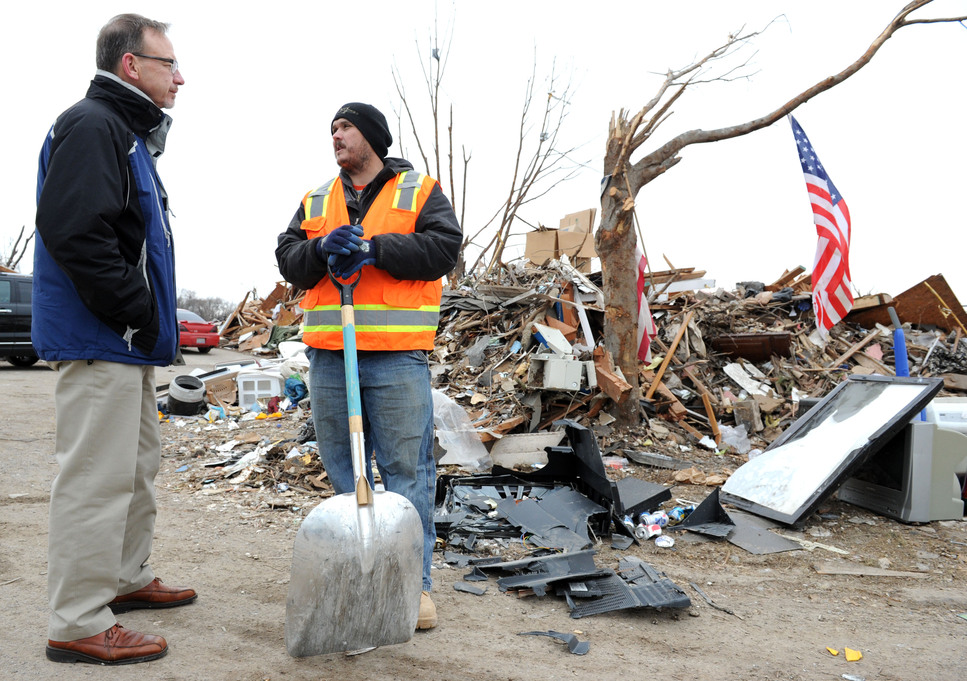
Ed. note: This is cross-posted from fema.gov. See the original post here.
History is a great teacher.
Associate Pastor Ben Davidson of Bethany Community Church learned a valuable lesson during Hurricane Katrina in 2005 that benefitted him and his congregation the morning of Nov. 17, 2013, when a powerful tornado tore through Washington IL.
His quick thinking reminds me when disasters occur; having a plan can save lives and help pivot a community toward a strong recovery. I have learned this lesson many times through the faith leaders I’ve engaged as director of the DHS Center for Faith-based & Neighborhood Partnerships.
On Sunday morning Pastor Davidson was preparing to begin his adult Sunday school class, when he received an emergency phone call. A tornado had touched down and their church was in its path.
Immediately he and the staff worked to move the congregation --particularly the children -- to their designated shelter in the church location and they began to pray together as the storm passed through their community.
The entire congregation comforted one another through what Pastor Davidson recalls as "the longest 45 minutes of my life." Once all congregants were accounted for and that families could leave the sheltered location Pastor Davidson immediately went home to confirm the safety of his children who were at home sick that morning.
Immediately following the disaster, Bethany Community Church joined its fellow members of the Washington Ministerial Association, AmeriCorps and the Illinois Voluntary Organizations Active in Disaster to help coordinate the community’s recovery efforts.
Since the devastating event, more than 4,000 community volunteers have registered with Bethany Community Church to help their loved ones and neighbors during disasters. Their effort and commitment will help to increase the community’s resilience and ensure they are better prepared for emergencies.
The story of Washington, IL, and Bethany Community Church is a reminder of the care and compassion that faith-based organizations can provide all survivors in times of disaster. Their story reinforces the power of a whole community, “survivor centric” approach and the important role and responsibility of faith leaders in preparing their communities before disasters strike.
I encourage you to know what to do before disaster strikes by joining the thousands of faith-based and community members on the National Preparedness Coalition faith-based community of practice and connecting with faith and community leaders across the country working on preparedness.
Being prepared contributes to our national security, our nation’s resilience, and our personal readiness.
David Myers is the Director of the Center for Faith-Based & Neighborhood Partnerships




